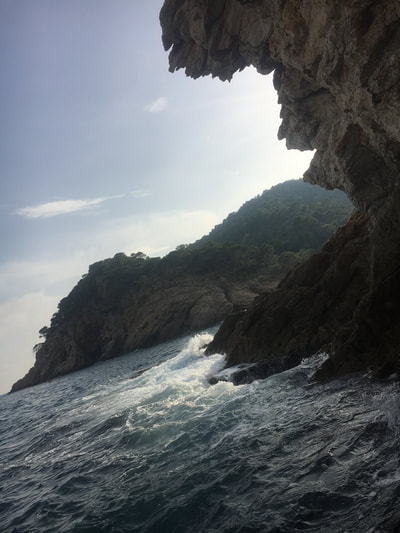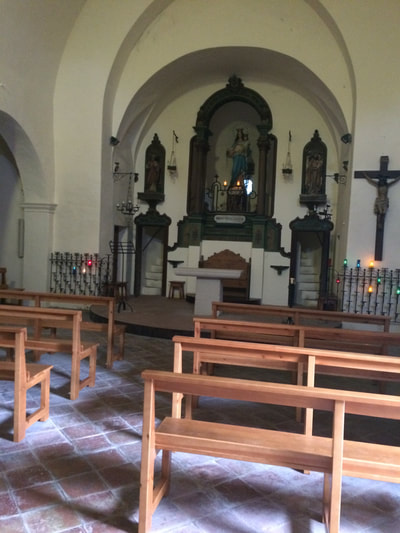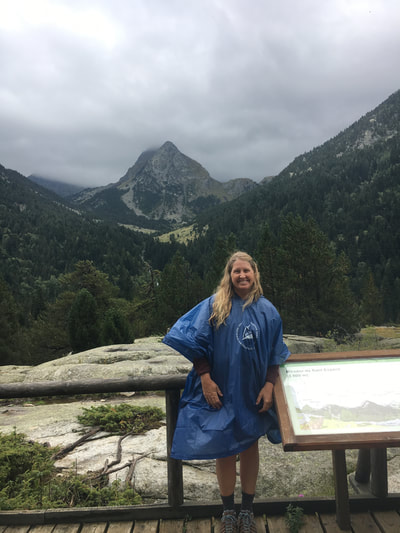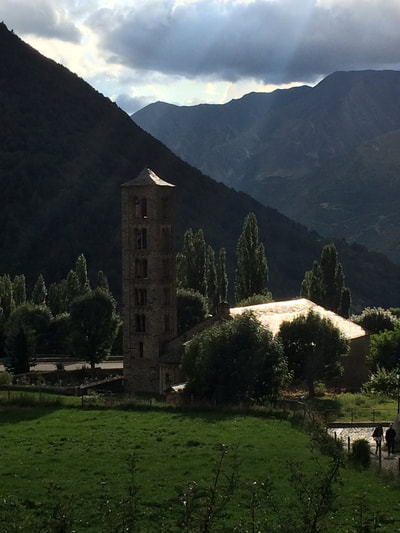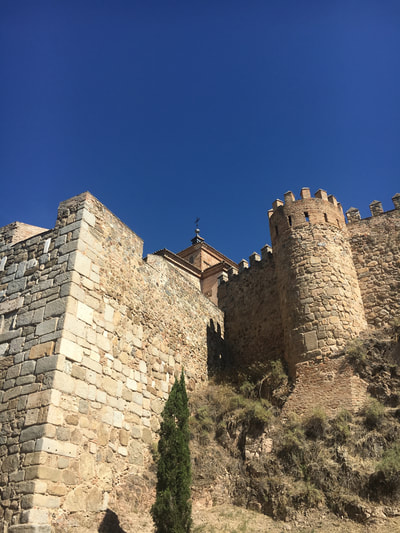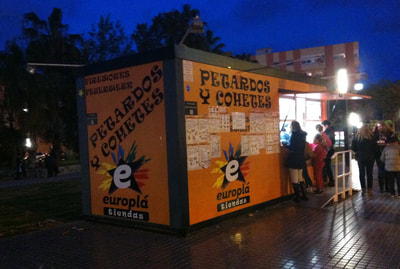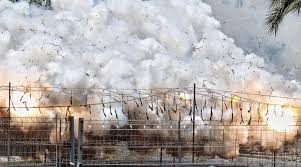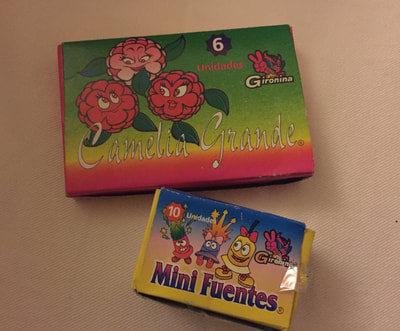|
I embarrassed my family yesterday in Valencia while we were waiting to cross the street. A loud boom that rattled the street signs went off behind me and I screamed. Now, this would seem like a reasonable response to most people, unless you live in Valencia. The festival of Las Fallas is a festival of fire, but it has morphed into a festival of all things explosive. Even though Las Fallas officially takes place every 15-19 of March, it really starts at the end of February. As we have learned in Spain, it's not just the party that matters, but the lead-up to the party. Kind of like the idea that when it turns 5:00 it's acceptable to open a first beer, the month leading up to Las Fallas means it's acceptable to start lighting fireworks. And, I'm not talking about the occasional firework. Really, fireworks are going off nonstop. In Valencia, there is less time without the sound of popping and booming than there is with it. And, people are not even fazed (hence the embarrassment of my family).
In the United States, it is illegal to buy fireworks in most states. This is what makes it especially interesting to see that there is a shop in almost every neighborhood devoted to selling fireworks. We decided to participate in the experience and buy some to set off at home. We joined the line at one of the little shops. The line is filled with kids, grandparents, teenagers, and parents. You do have to be 18 to buy one of the massive shooting rockets, but other than that it is fair game. Walking down streets in the neighborhoods of Valencia is like a war zone, as kids as young as 4 light and throw fireworks at people passing by and at each other. Sometimes they are supervised, or sometimes you see adults nearby smoking and talking, or eating at tables set up on the sidewalks. At night in Puzol (our small town outside Valencia), it sounds like it is thundering all through the night. The pre-Fallas fireworks are not ones of light but of sound. In fact, the daily spectacle called the mascleta, held every day in Valencia at 2:00, is called an audio fireworks show. And, another Fallas tradition occurs every morning at 8:00 am in Valencia, as booming sounds are set off every morning to wake people for the day despite the late-night revelry. This is especially popular outside of hotel windows The kids on Carson's Valencian football team laugh at visitors that are afraid of all the sounds. They say that Americans think explosions always mean bombs. They don't understand why a contry would restrict fireworks and not guns. They told him they are taking him out to really hear the sounds of Las Fallas. One of the things I love about Spain, and all the people I've seen here, is the respect they seem to have for their festivals and for how they conduct themselves. As raucous as Las Fallas is supposed to be, I have yet to see anyone drunk or disorderly. I have yet to see anyone being cruel or dangerous. Teenagers walk around together without being disrespectful. Grandparents with children are in the same places as college students. I can only imagine how a street festival dedicated to fires and parties would look in the United States. I know things change a bit the closer it gets to midnight, but here I am never afraid to be out in the city at night, or for my son to walk around with his friends. The ritual of an evening promenade applies to young and old alike. Typical of Spain, not only are our kids out of school to celebrate Fallas, but they are out for two days before, and one day after to recover. The school took all the international kids into Valencia to experience the mescleta and have the traditional chocolate and churros before it began. This was just a regular field trip, despite the fact that the buildings around the mescleta have to have shatterproof glass installed so they won't shatter. The sounds start small and build into a symphony of booms so loud that it can be heard all through Valencia. The only warning given the kids was for them not to cover their ears because the sound could get trapped inside and rupture their eardrums. If the sounds get too loud, you are supposed to open your mouth so that the sound will flow through you, and also so your teeth won't crack. The crowds at the mescletas are so large that once you commit, you couldn't leave if you wanted to. And in Spain, nobody would want to. Both of my kids loved it!!
2 Comments
Sherron
3/20/2018 06:58:53 am
I’m glad you talked about eardrums. I can’t imagine hearing those loud. Booms constantly. They are bound to affect hearing ! I think of the way our dog Sparky - and other dogs too - would react to loud noises on July 4. But who knows - maybe Spanish dogs are used to the festival, but I doubt it. They probably Hide under the beds.
Reply
Alice
3/20/2018 09:19:14 am
Our dogs too, especially Willie, our foundling dog, were terrified of loud noises, and they were miserable during the 4th of July and New Year's Eve! I suppose dogs in Spain are just from puppyhood onward totally accustomed to loud noises. But with their hearing as acute as it is, I'm wondering if dogs in Spain go deaf sooner than American dogs? Or if PEOPLE do, for that matter!!!!
Reply
Leave a Reply. |
AuthorSally and her family moved to Spain for a year from July 2017 - July 2018. They lived in a little town called Puzol, which is about 20km north of Valencia. Her kids, Carson and Celia, attended the American School of Valencia, an International School located in Puzol. The goal for the whole family was to experience another way of life, and learn Spanish. Archives
May 2018
topics |
contact
|
